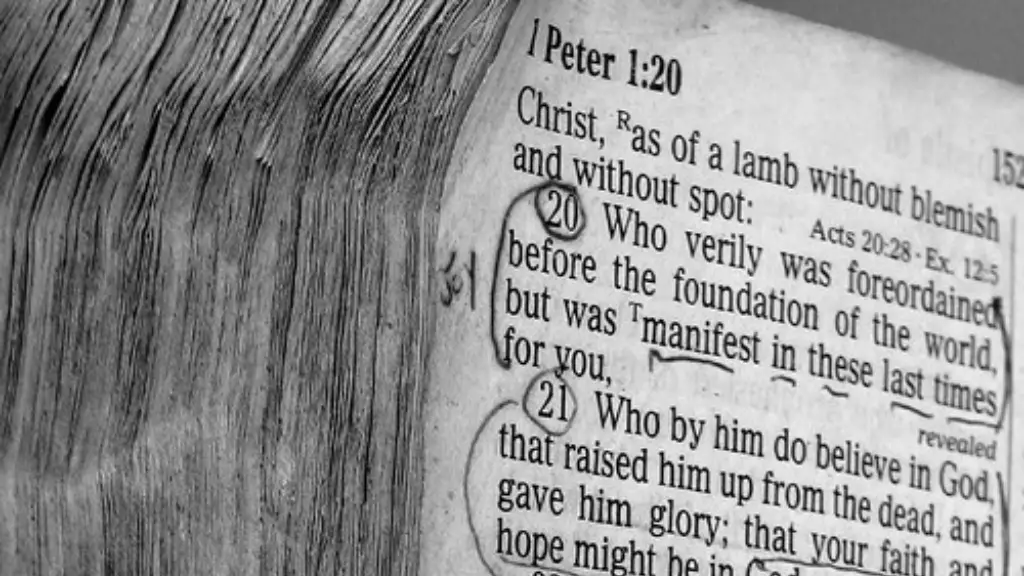Canaanite generally refers to someone who is from the land of Canaan. In the Bible, the land of Canaan was the area between the Mediterranean Sea and the Jordan River. The Canaanites were a Semitic-speaking people who lived in this area.
There are a few possible interpretations of the word “Canaanite” in the Bible. Some scholars believe that it refers to the people who lived in the region known as Canaan, while others interpret it to mean “merchant” or “trader.”
What does being a Canaanite mean?
The Canaanites were an ancient Semitic people who occupied the land of Canaan before the Israelite conquest. The Canaanite language belonged to the Canaanitic branch of the Semitic subfamily of the Afro-Asiatic family. The Canaanites were eventually conquered and assimilated by the Israelites.
The term “Canaanite” is used to describe a person or group of people from the ancient region of Canaan. The origin of the term is disputed, but it is thought to come from an old Semitic word meaning “reddish purple.” This may refer to the rich purple or crimson dye that was produced in the area, or to the wool that was dyed with this color. Biblically, the Canaanites are identified as the descendants of Canaan, a son of Ham and grandson of Noah.
What does the name Canaan mean
The name Canaan is derived from a Hebrew word meaning “merchant, trader, or that humbles and subdues.” In the Bible, Canaan was the son of Ham and the father of the Canaanites, a people who inhabited the land of Canaan, which is now modern-day Israel and the Palestinian territories. The Canaanites were a Semitic people, and their language, Canaanite, was a branch of the Semitic family of languages.
The Lebanese population is largely descended from the ancient Canaanites, which means that they inherit more than 90% of their genes from this ancient source. The other 7% may have come from migrants from Central Europe who moved to the Levant around 3000 years ago. This is an interesting finding, as it shows that the Lebanese people have a strong connection to their ancient roots.
Why did god remove the Canaanites?
The conquest of Canaan was more about ending the Canaanites’ religious and cultural practices than about ending their lives. The problem wasn’t the people, but idolatry. Idolatry was a major issue for the people of Israel, and the conquest was a way to end that problem.
Canaanite religious beliefs were polytheistic, with families typically focusing on veneration of the dead in the form of household gods and goddesses, the Elohim, while acknowledging the existence of other deities such as Baal and El, Mot, Qos, Asherah and Astarte.
What are the two meanings of the word Canaan?
The land of Palestine holds a special place in the hearts of many people. It is the land promised by God to Abraham and his descendants, and has been a holy land for centuries. Many people have fought and died for the right to live in this land, and it remains a controversial place today.
Baal was one of the most important gods in the ancient Middle Eastern pantheon, and was especially worshipped as a fertility deity by the Canaanites. He was often depicted as a bull, and his symbols included the crescent moon and the thunderbolt.
What is the promised land called today
Palestine is a small country located in the Middle East. It is bordered by Israel to the west, the Gaza Strip to the east, and Egypt to the south. The capital of Palestine is Gaza City.
Israel refers to both a people within Canaan and later to the political entity formed by those people. The Israelites are the people who were said to have come from the Exodus from Egypt, and they conquered the land of Canaan. The Canaanites are the people who were living in the land of Canaan before the Israelites arrived.
Why did God call Canaan the promised land?
The Israelites have always been seen as God’s chosen people and the Promised Land has always been seen as a symbol of hope and prosperity. The Promised Land was originally promised to Abraham and his offspring, but it was later given to the Israelites as a whole. God has always been seen as the protector of the Israelites and the Promised Land has always been seen as a place of safety and security.
Canaan land is a metaphor for a land of promise or spiritual state of liberation from oppression. Moses’ journey from Egypt to the promised land of Canaan thus symbolizes a people’s journey from oppression to freedom, from sin to grace.
What God did the Canaanites worship
Canaanite deities were originally organized into a pantheon headed by El, the creator god. Other members of the pantheon included El’s consort Athirat (Asherah), the storm god Ba’al, and Ba’al’s sister Anat, a goddess of hunting and warfare. El was depicted in Canaanite art as a seated male figure with arms raised as if about to give a blessing.
The present-day Lebanese people are believed to be the direct descendants of the Canaanites, but they also have a small proportion of Eurasian ancestry. This Eurasian ancestry is thought to have come from conquests by distant populations such as the Assyrians, Persians, or Macedonians.
Why is Canaan called the land of milk and honey?
The term “a land flowing with milk and honey” is used to describe Israel in the Bible, indicating its abundant fertility. The phrase is used in the Torah to describe the Promised Land, and is also used in the Book of Exodus to describe the land of Canaan. In the Book of Numbers, the phrase is used to describe the land of Goshen. In the Book of Joshua, the phrase is used to describe the land of Canaan. In the Book of Judges, the phrase is used to describe the land of Canaan. In the Book of Ruth, the phrase is used to describe the land of Bethlehem. In the First Book of Samuel, the phrase is used to describe the land of Israel. In the Second Book of Samuel, the phrase is used to describe the land of Israel. In the First Book of Kings, the phrase is used to describe the land of Israel. In the Second Book of Kings, the phrase is used to describe the land of Israel. In the Book of Isaiah, the phrase is used to describe the land of Israel. In the Book of Jeremiah, the phrase is used to describe the land of Israel. In the Book of Ezekiel, the phrase is used to describe the land of Israel. In the Book of Hosea
The Canaanite woman was an enemy of Israel, according to the traditional biblical identification. Thus, Matthew has intentionally labeled the woman a Canaanite in the narrative to show that she was an enemy of Israel and a gentile. Carter (2000:321-322) shows that Canaanites were enemies to the Judeans.
Are Canaanites Israelites
This is interesting! The study finds that the Canaanites were the common ancestor for several ancient peoples who inhabited the Levant during the Bronze Age. This means that the Canaanites were not just one group of people, but rather a group of people who shared a common ancestor. This is significant because it shows that the Canaanites were not just a single culture or ethnicity, but rather a group of people who were culturally and ethnically diverse.
The command to utterly destroy these people refers to the Amalekites, who were a nomadic people that continuously harassed and attacked the Israelites during their journey through the wilderness. The Israelites were instructed by God to completely exterminate the Amalekites, including their women, children, and livestock. This was to be done as an act of obedience to God and as a way of protecting the Israelites from further harm. Joshua carried out this command after the Israelites had defeated the Amalekites and taken control of the land. He stated that he did everything the Lord had commanded, indicating that he had no remorse for the destruction he had caused.
Final Words
The word Canaanite can mean different things in the Bible, depending on the context. Sometimes it refers to the people who lived in the land of Canaan, and other times it refers to the land itself.
There is no definitive answer to this question as it is a matter of interpretation. Some people believe that the term canaanite refers to a specific group of people mentioned in the Bible, while others believe that it is a general term used to refer to all people who lived in the land of Canaan.





